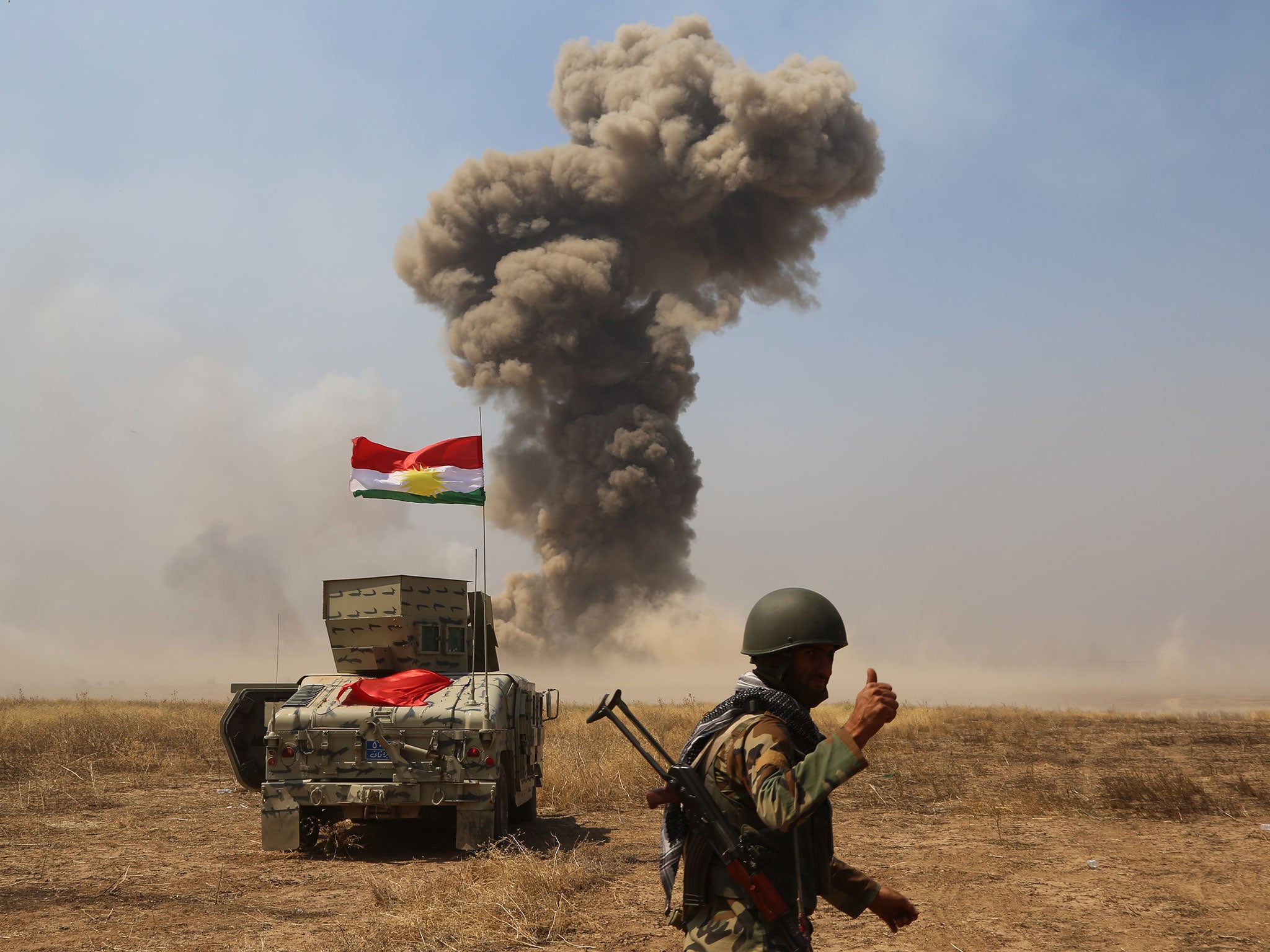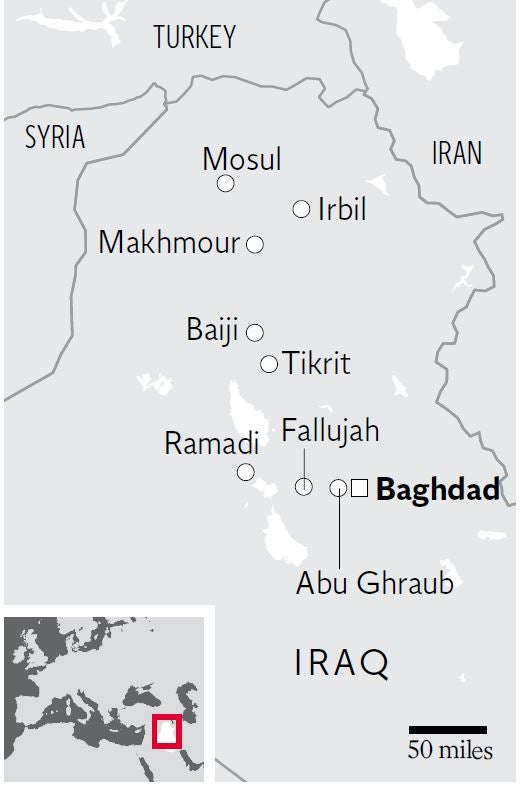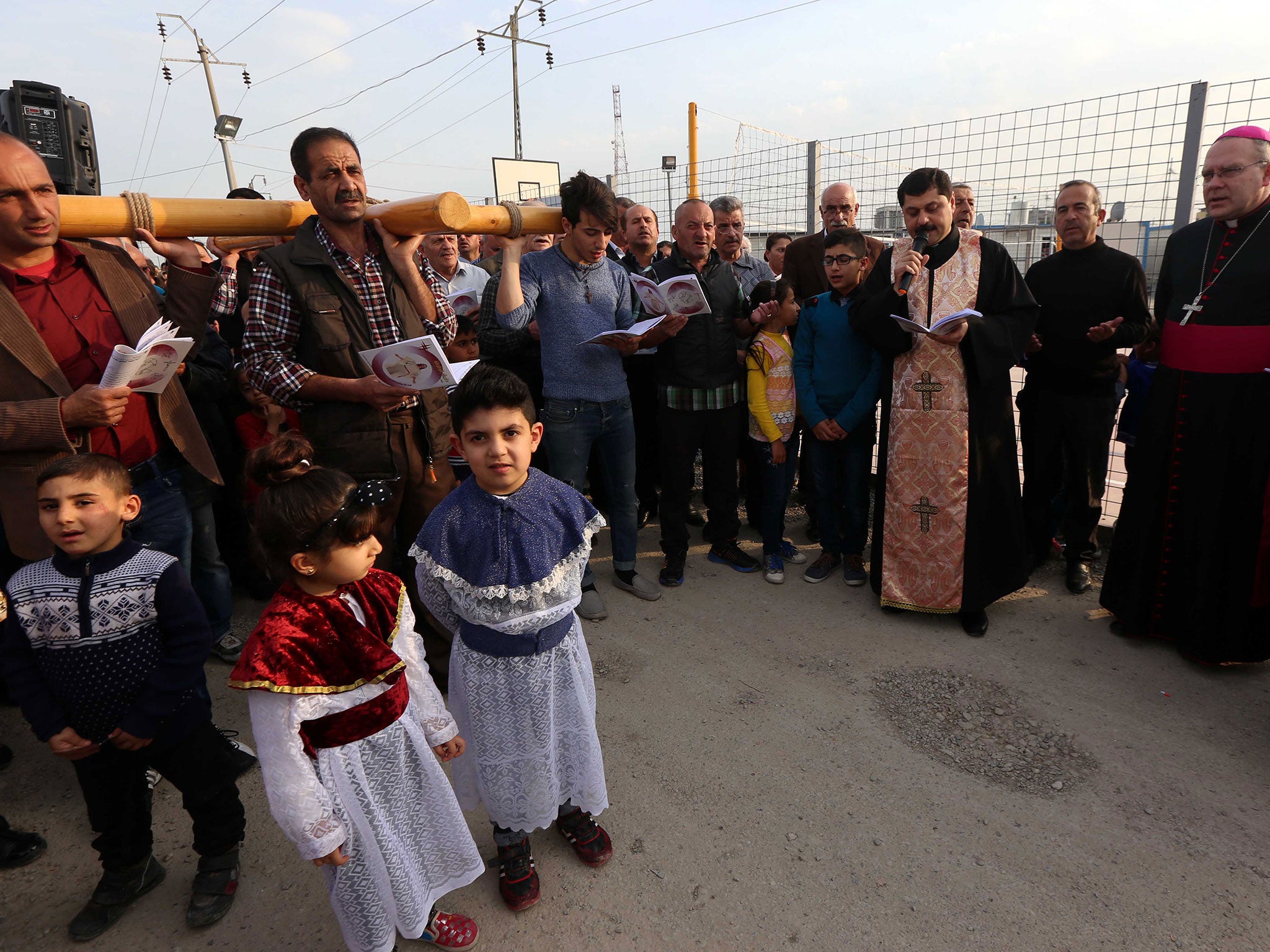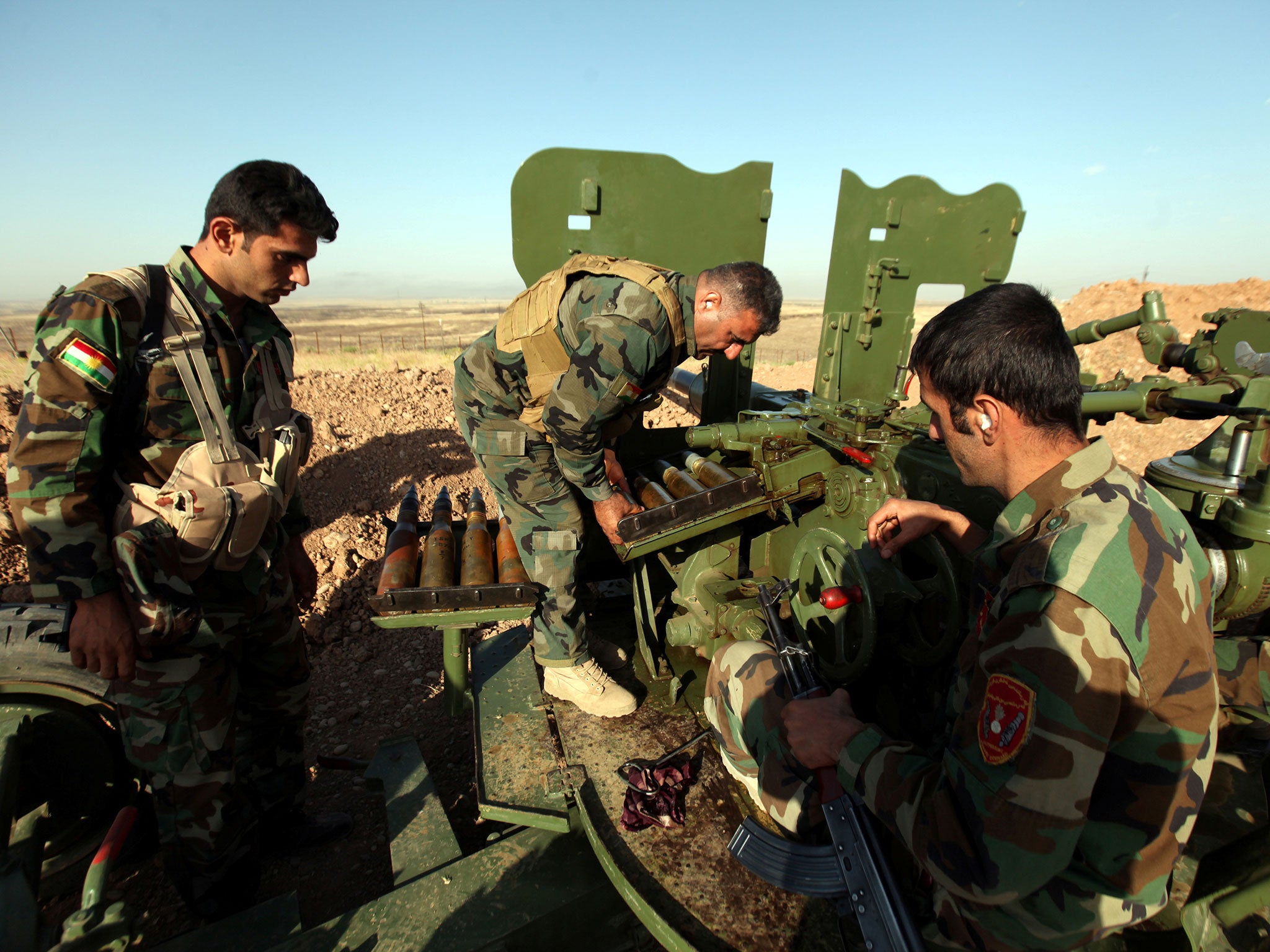Isis digs in against attack on Iraq's second city while brutally punishing those who rebel against them
In the first of a four-part series on the war against Isis, Patrick Cockburn reports that while the jihadists face battles on multiple fronts, civilians who have fled from Mosul speak of a ruthless group who will defend the city at all costs

Your support helps us to tell the story
From reproductive rights to climate change to Big Tech, The Independent is on the ground when the story is developing. Whether it's investigating the financials of Elon Musk's pro-Trump PAC or producing our latest documentary, 'The A Word', which shines a light on the American women fighting for reproductive rights, we know how important it is to parse out the facts from the messaging.
At such a critical moment in US history, we need reporters on the ground. Your donation allows us to keep sending journalists to speak to both sides of the story.
The Independent is trusted by Americans across the entire political spectrum. And unlike many other quality news outlets, we choose not to lock Americans out of our reporting and analysis with paywalls. We believe quality journalism should be available to everyone, paid for by those who can afford it.
Your support makes all the difference.In the last few days somebody has been painting the initial letter of the Arabic word for “resistance” – muqawama – on walls in Mosul. Some fifteen Isis members have been assassinated by a group calling itself Ketaib Mosul that is evidently well informed about whom it targets.
There are repeated airstrikes by the US-led Coalition on Isis personnel and facilities and there has long been an expectation among the estimated 1.5 million people still in Mosul that there would be an assault on the city by the Iraqi army, Kurdish Peshmerga and Sunni tribal militias backed by the massive firepower of Coalition aircraft and drones.
The anti-Isis forces began what they said were the first stages of this attack on Sunday. To avoid being caught up in what may be the climactic battle for the war in Iraq and Syria some 4,000 people from Mosul have paid up to $600 (£410) a head to have themselves smuggled into Syria over the last month according to the UN High Commission for Refugees.
“People don’t feel safe,” says Ahmed Ali, 40, a villager who visited his two brothers in Mosul two weeks ago. “There is pressure all the time. Nobody knows when he will die or be punished for something small like smoking a cigarette.”
Salem, 29, a former teacher of English who gave up his job when Isis introduced their own curriculum, agrees that punishments are arbitrary. He recalls that last year he received six lashes from a whip on his back because he had shaved his upper cheeks in a way that IS militants considered un-Islamic, though he had retained his long beard. “I was lucky,” he says. “I have friend who received 20 lashes for exactly the same thing.”
Hatred there may be against Isis in Mosul but there is not much people can do about it as they are unarmed and Isis responds ferociously to any sign of dissent. Last August it posted on the wall of the main morgue a list of 2070 people whom it had executed since June 2014 when it captured the city.
Many were former policemen army officers, journalists and political activists who had disappeared and whose fate was unknown. Salem says that he “had a friend who had taken a picture on his phone of himself in military uniform, though it was an act of bravado and he was never in the army, but Isis found it and shot him in the head.”
The feelings of people in Mosul is important because it is almost exactly two years ago since Isis captured the city and declared its “Caliphate”. Only a few months earlier President Obama had compared the movement to a minor league baseball team that was never going to get anywhere. By seizing Mosul, the second largest city in Iraq, Isis proved him wrong and began a campaign in which it overran western Iraq and eastern Syria, showing the world that there was a new and terrifying player in the Middle East.
Isis today may be battered by attacks by its many enemies and has lost many population centres in Iraq and Syria such as Ramadi, Tikrit, Baiji, Sinjar and Palmyra. But Mosul is far more important than any of these because of its size, making up between a quarter and a third of the five or six million people living under the rule of Isis. The loss of the city would be a calamitous psychological blow to Isis’s prestige, just as its capture in 2014 by several hundred fighters opposed by a garrison of 20,000, was claimed by Isis as a sign that it had divine assistance.
Mosul is the last big city held by Isis in the civil war being waged across Iraq and Syria. Isis’s Syrian capital Raqqa is small by comparison. Mosul has kept most of its population and is largely undamaged, while Ramadi, which once had a population of 400,000, is 70 per cent destroyed, Fallujah may soon go the same way and in Aleppo the rebel-held half of the city may now have only a population of 200,000 because of indiscriminate barrel bombing and artillery fire by government forces.

Mosul still has its population because it is very difficult to get out. All the eyewitnesses cited in this article, none of whom want their real names published, escaped by paying smugglers or had visited the city briefly from their villages that were then captured by the Iraqi army.
Ahmed Ali says that “Isis stops most people from permanently leaving Mosul by confiscating their ID card so they nothing to show their identity when they reach Kurdish forces who suspect they are Isis agents.”
Salem paid $2,000 (£1,370) to smugglers for himself, his wife and small daughter, though he was terrified that Isis would discover them as they walked for hours through overgrown fields. He says that most people in Mosul would leave if they could, but, though Isis may be weaker than it was, it is still fully in control and capable of terrifying potential opponents who chose silence or flight rather than resistance.
Fadel, who was in the Iraqi army at the time of the fall of Mosul, says he did not leave his house in a village close to the Tigris River west of Mosul because he had been in the Iraqi army and feared being stopped at a checkpoint. One day last month he was in his house when his small nephew whispered to him that “Daesh [Isis] have come and are looking for you.” He fled out the back of the house and eventually made his way to the Kurdish frontline.
Living conditions have got tougher in Mosul over the last year because of the cutting by the Peshmerga of the main road link to Syria, from which most imports used to come under Isis rule. Canned food, oil and gas still get through but are expensive and the crudely refined oil is poor quality and can only be used in generators and not in vehicles. Fresh vegetables are expensive, but meat is cheap at 5,000 dinars or £3 a kilo because the farmers cannot send it to other parts of Iraq as they did in the past. Even so many in Mosul are jobless and cannot afford it. Fresh water, which used to be in short supply, is now more plentiful because people have been digging wells.
Significantly, Isis is still able to give a ration of flour so a family of seven will get a 50 kilo sack every month, showing that Isis’s administrative has not broken down though it may be under strain. Even Salem, who detests Isis rule and hopes for their defeat, admits that they repair the roads and keep them cleaner than the Baghdad government ever did. Life under Isis, though difficult and dangerous, is still sustainable.

A problem in assessing what people in Mosul really think about Isis is that those fleeing the city are partial witnesses with every reason to emphasise the horrors they have escaped. Information from the Kurdish authorities and the Coalition tends to be propagandistic and unreliable. There is strong evidence that Isis is opposed by the majority in Mosul for its extreme violence, the catastrophic decline in living standards, the destruction of revered mosques and monuments and the reduction of women to servile status. But the movement can still find volunteers to be fighters and suicide bombers, despite heavy losses.
It is very seldom possible to get convincing testimony from committed Isis supporters about their recruitment and willingness to die in battle. But an Iraqi correspondent for the Berlin-based website NIQASH, recently obtained a rare insight into how and why a 15-year-old in Mosul decided to become a suicide bomber. He was interviewed in a Mosul hospital where he had been sent after he became seriously ill, and before he could go on suicide mission. His story is worth quoting at length because it shows how Isis attracts recruits and turns them into fanatical fighters.

He describes how one day he saw a crowd of people gathered around screens in a small house built by Isis at the entrance to his neighbourhood. He says that “everyone was watching a film of a battle between the Caliphate’s soldiers and the Iraqi army. There were suicide bombers and mortars going off. The scene peaked with Daesh’s occupation of the area they were fighting for and the raising of Daesh’s flag on buildings and around the streets. It was an action movie! There was so much excitement. But it was all real.” He went to more films and, enthused by what he saw, eventually volunteered to become an Isis fighter.
He was taken with two other boys of his own age to the cellar of a house where 24 boys aged between 12 and 17 were living. “I was pretty scared there,” he says. “And I was confused. I didn’t talk to anybody in the basement and my hands were shaking. I remember saying to myself: Why are you here, you crazy idiot?” But after half an hour an older man with a long grey beard arrived and spoke to him kindly, introducing himself as Ali Abdullah who had once spent ten years in Saddam Hussein’s Republican Guard. He spent a month with the boys teaching them about religion and holy war for eight hours a day. “Around him we all felt like we were strong men, confident. He used to tell us how we would fight for the Islamic State’s [Isis] victory and how we would go to heaven where we would find delicious food, beautiful women and wine and ‘everything you crave’.”
The recruits received rigorous military training supervised by Ali Abdullah, going to woodland around Mosul be taught how to use weapon, explosive belts and bombs as well as how to drive cars and motorbikes. Back in the cellar of the house, which had once belonged to a Christian family, they were permanently hungry living on a handful of dates, bread and water in what was evidently a toughening up process. “During the three months we were there, we only washed properly three times. We all smelt like rats,” the 15-year-old says.
Because of the insanitary conditions in the cellar, the young man got a serious kidney and stomach infection and ended up in Mosul hospital where he was interviewed. He is still intending to become a suicide bomber when he gets well and will follow his friends to paradise.
Though vastly outgunned, Isis can go on killing people for a long time if it continues to recruit and train such fanatics.
Patrick Cockburn is the author of ‘Chaos and Caliphate: Jihadis and the West in the Struggle for the Middle East', published by OR Books, £18. Readers can obtain a 15 per cent discount by using the code: INDEPENDENT
Join our commenting forum
Join thought-provoking conversations, follow other Independent readers and see their replies
Comments